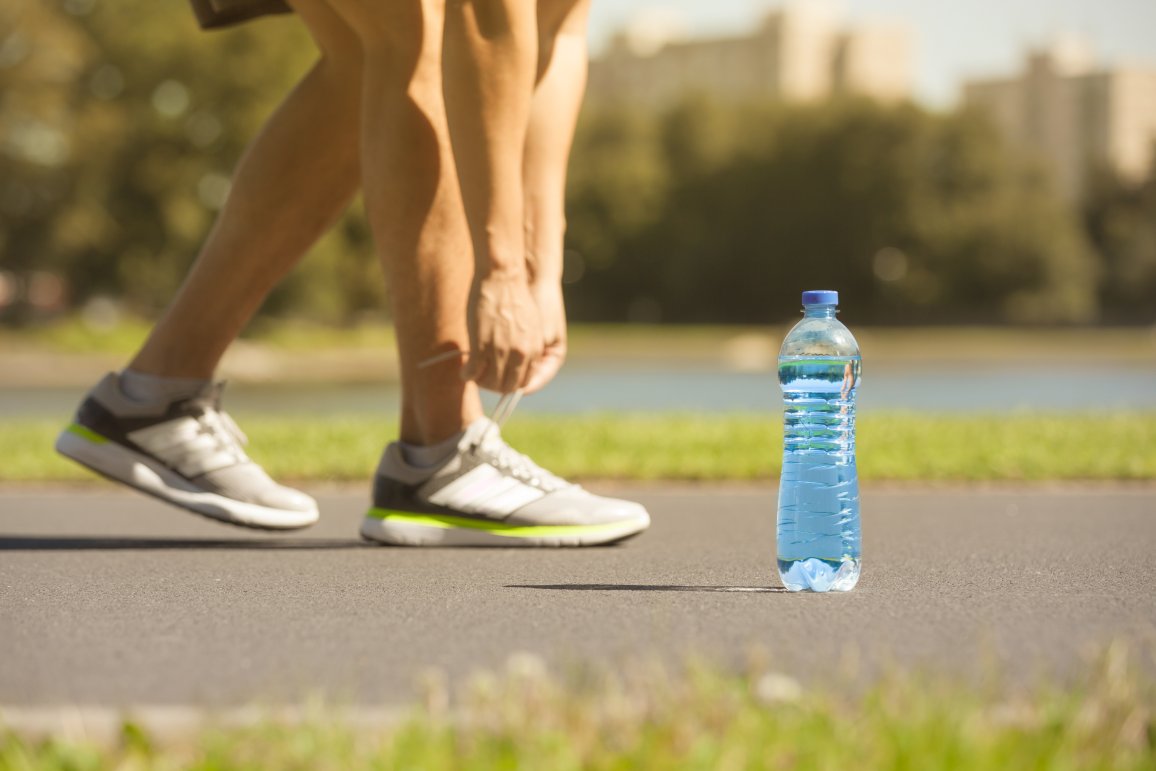Sport and plastic: what athletes need to know about sustainability
In an open letter to major sports sponsors in the beverage industry, around 100 Olympic athletes are calling for single-use plastics to be replaced by reusable packaging. With the help of two experts, Chris DeArmitt, President of Phantom Plastics and one of the world's leading scientists in the field of plastics, and Joseph Tayefeh, Secretary General of the European trade union Plastalliance, ALPLA shows that these demands are not always effective - especially for athletes.

Do the demands make sense?
In an open letter, around 100 athletes currently competing at the Summer Olympics in Paris are calling on major sports sponsors from the beverage industry to reduce the use of single-use plastics. The athletes say that plastics pollute the environment and have a negative impact on health. Reusable packaging should be used as a solution. To bring clarity to the issue, ALPLA, together with experts Chris DeArmitt, President of Phantom Plastics and one of the world's leading scientists in the field of plastics, and Joseph Tayefeh, Secretary General of the European trade union Plastalliance, took a closer look at the arguments in the open letter.
No Olympics without plastics
Firstly, it is important to remember that the Olympic Games and sport as we know it would not be possible without plastics. After all, plastic made from fossil raw materials is used in tennis rackets, swimming goggles, balls, sports shoes and much more, without the athletes or various NGOs bothering. What does bother them, however, is demonstrably sustainable single-use packaging that is not only 100% recyclable but can also be produced from 100% recycled material. To conclude from the fact that only 9% of all plastic waste ever produced has been recycled that recycling does not work is wrong, as Joseph Tayefeh points out: “According to the NGOs, recycling would not solve the problem of plastic pollution? If more than 70% of the world's plastic was collected for recycling and there was still so much plastic pollution in nature, then we could say that recycling doesn't work. But at 9%, we haven't really started recycling yet”.
Chris DeArmitt adds that the plastic pollution cited by the athletes has been proven by scientists to be waste caused by humans and not by the material itself or directly by companies: “The solutions to too much waste are education, deposits and fines. Blaming individual companies, on the other hand, is counterproductive”. According to Chris DeArmitt's research and analyses, there is also no scientific evidence to prove that plastic is harmful to health. "Plastics that are in contact with food are tested extensively and are approved by the relevant food safety authorities, such as the FDA in the USA".
Plastics are part of the solution
The open letter also cites the climate crisis and plastic in the oceans as negative examples. But switching to reusable plastics will not solve these problems. After all, consumer plastic products only account for 0.03% of the weight of plastic in the oceans. "The focus should be on the real proven threat, which is discarded nets from the fishing industry," says DeArmitt, pointing to the main contributors to the problem. And when it comes to climate change, plastics are an important part of the solution, DeArmitt continues: "The production of plastics generates about two per cent of greenhouse gases, but the use of plastics reduces greenhouse gases by much more than that, for example by reducing the weight of vehicles or reducing food waste. Replacing plastic packaging increases greenhouse gases in 93% of the cases studied, and ultimately means three to four times more material consumption and waste".
Reuse in sport has its dangers
Reusable packaging is often a good alternative and, in many cases, more sustainable than disposable packaging in terms of carbon footprint. However, especially in sport, there is a danger that is often not considered: doping. After initially hoping for a "zero plastic" event, the organizers of the 2023 Games are already lobbying for an exemption for the use of single-use PET bottles: "Many Olympic and Paralympic Committees, International Federations and current and former elite athletes have expressed their serious concerns if Paris 2024 does not provide access to sealed individual bottles that guarantee all the necessary security conditions. However, due to the nature of the events and the specific food and physical safety conditions, these containers can only be made of plastic. ... This precaution is to avoid the health risks of contamination of the drinks and to ensure greater integrity for anti-doping testing".
Trust the science
Blaming the manufacturers and distributors of plastic products as the polluters and asking them to solve the problem without doing anything themselves is often the easiest way. It would be better to tackle the real problem, as Joseph Tayefeh points out: "What pollutes is the lack of waste management in countries where waste is thrown on the streets. What pollutes is the rudeness of certain consumers in many countries with functioning collection systems. That's why we expect NGOs to stand up for issues on which everyone should agree: Banning landfill, reducing incineration and promoting recycling, because even reusable plastic packaging or plastic containers will eventually need to be recycled, using the same processes as single-use plastic products.
And Chris DeArmitt has a final message for the authors of the open letter: "Getting rid of plastic means causing massively more damage, according to numerous life cycle studies from around the world spanning decades. Let's build a better future based on real science and not give in to demands that are not supported by the evidence".
Do you like our texts? Perhaps even so much that you want to use them in your own media? Then please get in touch with us beforehand!
